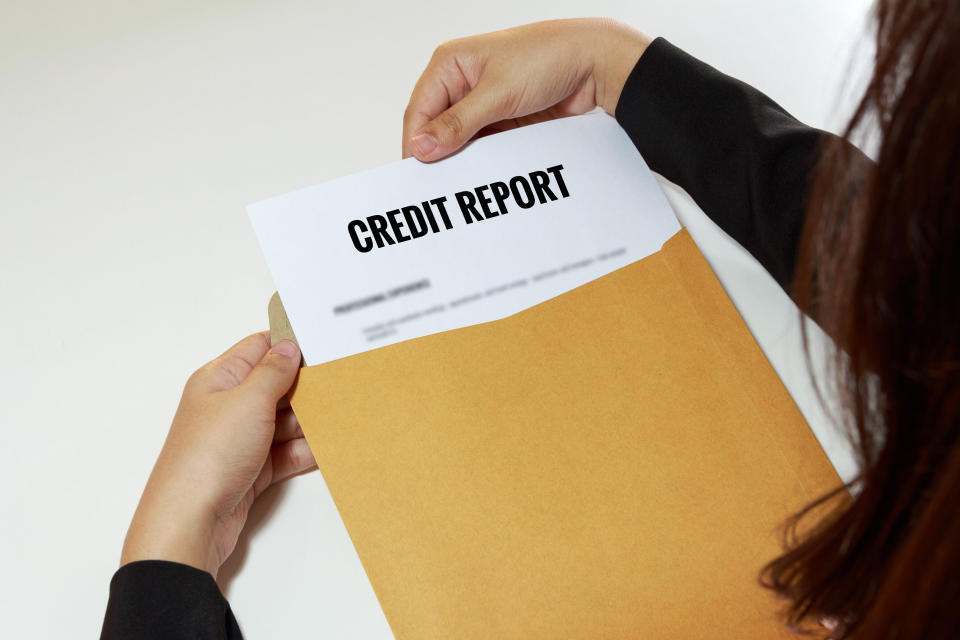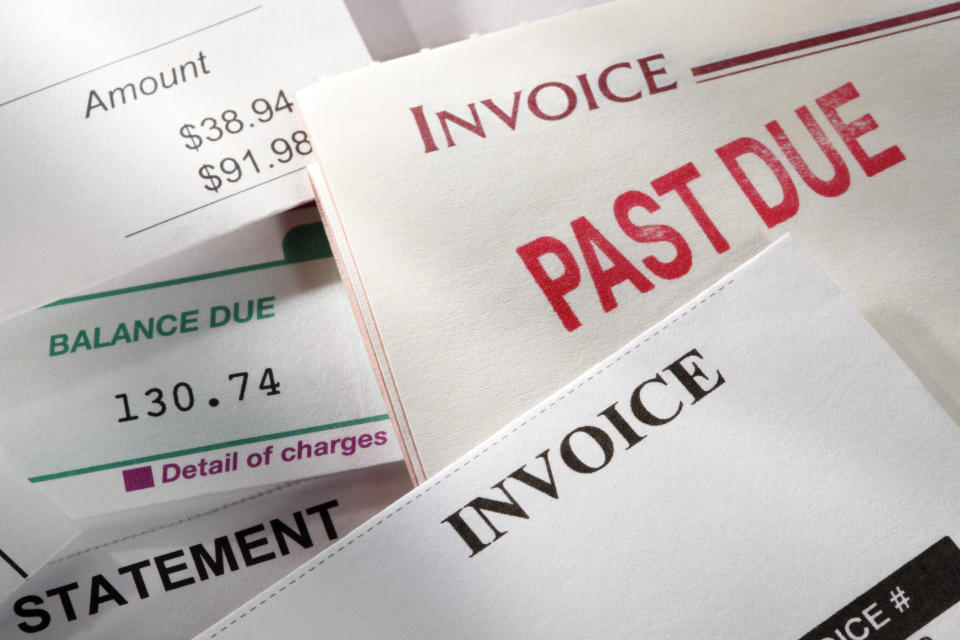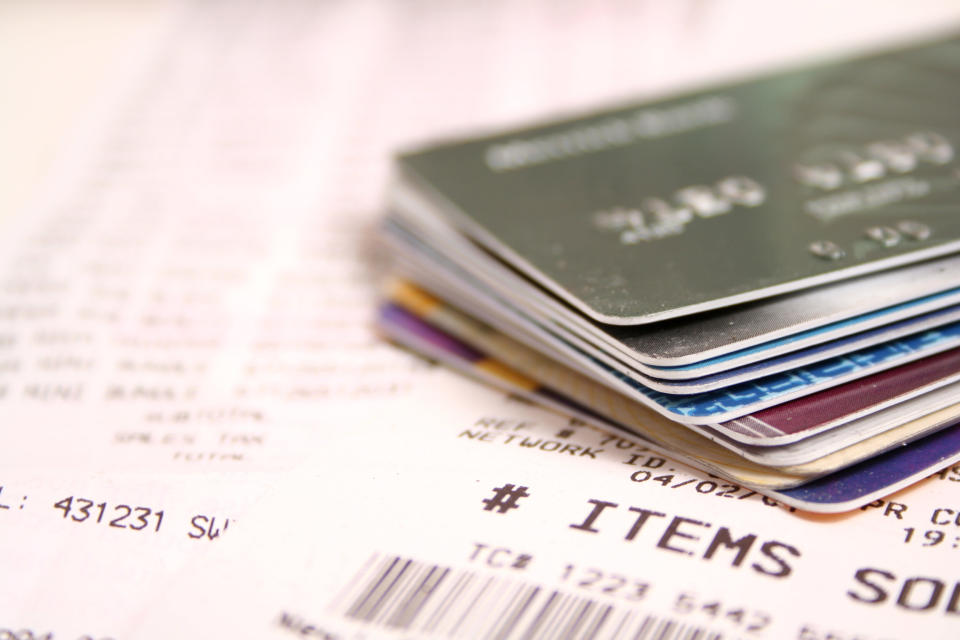You Can Build Credit Without Going Into Debt. Here's How.
Whether you’re completely new to using credit or simply doing your best to avoid debt, you might find there’s one annoying side effect: You don’t have a good credit score. Maybe you don’t have a score at all.
Although that might not seem like a big deal, especially if you don’t plan to borrow money anytime soon, it can still present problems in other areas.
For example, when healthy food blogger Vered DeLeeuw and her husband first moved to the United States, they didn’t have a credit history. “It was very difficult,” she said. “It was difficult to rent an apartment, to lease a car, even to buy a cell phone. Everyone wanted to see a good credit history.”
The truth is, it’s really tough to get by without decent credit. And one of the easiest ways to build credit is to open a credit card or take out a loan. But what if you don’t want to take on debt just to get a good credit score? You still have options.
How Do You Establish A Credit Score In The First Place?
Though there are a few competitors, including VantageScore, FICO credit scores are used in more than 90% of lending decisions made by financial institutions, according to Shawn Lane, co-founder and COO of the credit repair company FRS Credit.
In order to generate a FICO credit score, you need to meet three requirements:
Your credit report shows at least one tradeline (credit-based account) that has been open for a minimum of six months. Lane noted that this account can’t be in collections or be in dispute.
You also have at least one tradeline with activity that’s been reported to the credit bureaus within the past six months. Again, it can’t be a collection account and can’t be in dispute.
Your credit reports don’t show an indication that you’re deceased. That might seem strange, but it sometimes happens if you share an account with someone who died.
If you don’t have any accounts that have been open or active for at least six months, you don’t have a credit score.
Ways To Build Credit Without Debt
You don’t necessarily have to open a new credit card or take out a loan to establish a credit score. The same is true if you want to improve a score that’s been bruised and battered by financial missteps. These alternatives probably won’t send your score soaring into the 800s, but they will help you establish a credit history or bump up a bad score.
1. Sign up to have rent payments reported to the credit bureaus.

Eventually, DeLeeuw and her husband were able to rent an apartment by putting up a large cash deposit. Once a rental agreement was in place, they asked the building manager to report their rent payments to the credit bureaus. “She agreed, and that’s how we started building credit without actually taking on debt,” DeLeeuw said. “We simply made sure to pay our rent on time.”
Newer versions of the FICO score, including FICO 9 and FICO XD, consider rental information when calculating your score. So does VantageScore. However, most older versions of FICO that are widely used today do not consider rent to be a tradeline that gets reported to the credit bureaus. In fact, FICO estimates less than 1% of credit reports contain rental information.
The good news is that there are a few services you can sign up for that will report your rent activity, usually for a small fee, though they may not partner with all three of the major credit reporting bureaus. Your landlord also has to agree to participate. Rental Kharma, for example, costs $25 to set up and then $6.95 per month. It also allows you to have 24 months’ worth of payments retroactively reported to Transunion for an extra $60 fee. Rent Reporters requires an enrollment fee of $94.95 and then a monthly fee of $9.95. Enrollment includes up to two years of back payments, which are reported to TransUnion and Equifax.
2. Get added as an authorized user.
One of the easiest ways to establish credit without having to put yourself into any type of debt is to get added as an authorized user to a long-standing, high-limit card of a family member or close friend, said Michael Foguth, founder of Foguth Financial Group in Brighton, Michigan.
Authorized users basically piggyback on the credit history of the primary account holder. The card is reported on the authorized user’s credit reports, and they’re allowed to make purchases with the card. However, authorized users have no legal responsibility to pay the balance. “This tactic can help build your credit from scratch or improve your already established bad credit,” Foguth said. “It can also boost your available credit and length of credit history, which are two contributing factors to your credit score.”
Keep in mind that as an authorized user, you don’t actually need to have access to the card or use it in order for it to show up on your reports. As long as the primary cardholder uses the card and pays the bill on time, your score should benefit. On the other hand, if they max out the card and miss payments, your score will suffer ― so choose whom you work with wisely.
Also keep in mind that being added as an authorized user won’t necessarily have a huge impact on your score. The credit bureaus give less weight to authorized user status since you’re not actually the one responsible for paying back the debt. Still, this strategy can bump up your score, especially if you have a thin credit file.
3. Take out a credit-builder loan.

Don’t let the word “loan” give you pause. Credit-builder loans are designed for people with no credit or bad credit, and don’t work like a typical loan. “It is like a forced savings account,” Lane said.
Here’s how it works: You “borrow” a small sum of money, usually between $300 and $1,000. Those funds are secured by the bank in a deposit account such as a CD. You then make payments toward the loan in regular installments over the course of about a year. When the loan is repaid, the funds in the account are released to you, plus any interest that might have accrued.
Keep in mind, however, that these loans aren’t free. Usually, the lender will charge you an administrative fee and/or interest, so it’s important to compare costs before taking out a credit-builder loan. (Credit unions are a great place to look.) Often, the fees are worth paying in order to establish good credit or help repair a poor credit score.
4. “Boost” your score with utility payments.
A strategy recommended by Mark B. Huntley, co-founder of the credit advice site Credit Knocks, is signing up for Experian Boost.
This free tool was designed to help people with thin files beef up their credit by showing responsible behavior in areas that aren’t typically reported to the credit bureaus. By signing up for Experian Boost, you can get credit for paying phone and utility bills on time.
“You can sign up through the credit agency and choose which of your bills you’d like reported,” Huntley said. By giving Experian access to your bank accounts, the agency will comb through your transactions to find the payments that qualify. “Experian claims that their boost, on average, increases the user’s credit score 13 points.”
There are a few limitations to this service, however. For one, it only improves your Experian FICO score ― Equifax and TransUnion will not receive updated payment information. It also only applies to the FICO 8 scoring model, so you won’t see an improved score in other versions. And you have to pay your bills via your bank accounts; credit card transactions don’t count.
The good news is that it’s completely free and doesn’t require you to open any new accounts. Plus, Experian ignores derogatory payment history and only pulls in the positive, so you don’t have to worry about getting dinged for past mishaps. Simply pay your bills on time and your Experian score should get a boost (though there’s no guarantee it will).
5. Check your credit reports for errors.

Did you know your credit report could have at least one error on it? And if it does, there’s a chance that error is causing your credit score to be lower than it should be.
In 2012, the Federal Trade Commission did a study of credit report errors and found that about 1 in 5 consumers has a “confirmed material error” in at least one of their credit reports from the three major bureaus. A confirmed material error was defined as a mistake that, when corrected, would change their credit reports. And among that sample of people with credit report errors, about 5% had a mistake serious enough to result in a lower credit score that would cause them to pay higher interest rates on their debt.
That means if you have an error, finding it and disputing it with the credit bureau could result in an immediate lift to your score. To review your credit reports for errors, you can visit annualcreditreport.com, which is the only website that’s federally authorized to provide credit reports from all three bureaus at no cost. You’re allowed to request a free copy of your report once per year.
Comb over your reports for common mistakes such as the wrong name, missing accounts, duplicate accounts and accounts marked as past due that are actually in good standing. If you do find an error, you can dispute it online with the appropriate bureau:
Once you dispute an entry in your credit report, the credit bureau must investigate it within about 30 days unless they deem the claim frivolous. Once they’re done investigating, they must provide you a summary of the results in writing. And if you get a major error fixed, you should see an improvement in your credit score soon after.
If it matters to you, it matters to us. Support HuffPost’s journalism here.
Love HuffPost? Become a founding member of HuffPost Plus today.
Related Coverage
How This Former Landscaper Raised His Low Credit Score From 550 To 800
Credit Repair Companies Offer To Fix Your Credit For A Fee. Are They A Scam?
This Map Shows The Average Credit Score In Every State
Also on HuffPost
Myth 1: You should stay away from credit ― period.

Those who avoid using credit are at risk of never developing a strong credit history, according to Eszylfie Taylor, president of Taylor Insurance and Financial Services in Pasadena, California. “This may present challenges when a consumer looks to make larger purchases like a car or home, as they have not exhibited the ability to borrow money and repay debts,” Taylor said.
But even if you don’t plan on borrowing money for a major purchase, you can still run into trouble when renting an apartment, opening a new utility account or even getting a job if you don’t have an established credit history.
You don’t have to put yourself in debt to build good credit. But you do need to have some skin in the game.“The simple truth is that consumers should look to establish multiple lines of credit and make payments consistently to build up their credit scores,” said Taylor.
Myth 2: Closing credit cards will raise your credit score.

According to Roslyn Lash, a financial counselor and the author of The 7 Fruits of Budgeting, this has to do with your credit utilization ratio. This ratio represents how much of your total available credit you’re actually using ― the lower your utilization, the better your score.
If you close a credit card, your available credit immediately drops.“If you have less credit but the same amount of debt, it could actually hurt your score,” Lash explained. In most cases, it’s better to cut up the card but keep the account open. Setting up account alerts can help you keep tabs on any activity or fraudulent charges.
Myth 3: Checking your own credit hurts your score.

Checking your own credit results in a “soft” inquiry, which doesn’t affect your score, according to Adrian Nazari, CEO and founder of free credit score site Credit Sesame. Other types of soft inquiries include when you’re pre-approved for a credit card in the mail or a prospective employer runs a credit check as part of the hiring process.
You can check your credit score as often as you want with no consequence. In fact, you should check it regularly; a sudden dip could indicate a problem or possible fraud.
Sites such as Credit Sesame and Credit Karma allow you to see your VantageScore 3.0 for free, though you should know this is usually not the score that lenders review. The most widely used score is your FICO score. And though there are services that charge a monthly fee to gain access to your FICO, you can often see it for free if you have a credit card with a major issuer such as Chase.
Myth 4: Making more money will increase your score.

It seems to make sense that the more you earn, the easier it should be for you to pay your debts, but “your income has nothing to do with your score,” Lash said. So feel free to celebrate that next raise, but know that your credit score will remain the same.
Myth 5: Credit reports and scores are the same things.
![<strong>Truth:</strong> Though it represents the same types of information, your <a href="https://www.huffpost.com/topic/credit-report">credit report</a> is not the same as your credit score.Think of a credit report as your financial report card and your credit score as the overall grade.<br /><br />“Your credit report is a record of your credit accounts … [including] your identifying information, a list of your credit accounts, any collection accounts you have, public records like bankruptcies and liens and any inquiries that have been made into your credit,” said Nazari.<br /><br />On the other hand, your credit score is a three-digit number that represents how likely you are to repay your debts based on the information contained in the report. Your score is “based on a complex algorithm that evaluates your relationship with credit over time,” explained Nazari. “Your credit score is not included on your credit report.”](https://s.yimg.com/ny/api/res/1.2/VggrQF_VOdzWL5.OO3PO.A--/YXBwaWQ9aGlnaGxhbmRlcjt3PTk2MA--/https://img.huffingtonpost.com/asset/5d0184d62500006813df9a9e.jpeg)
“Your credit report is a record of your credit accounts … [including] your identifying information, a list of your credit accounts, any collection accounts you have, public records like bankruptcies and liens and any inquiries that have been made into your credit,” said Nazari.
On the other hand, your credit score is a three-digit number that represents how likely you are to repay your debts based on the information contained in the report. Your score is “based on a complex algorithm that evaluates your relationship with credit over time,” explained Nazari. “Your credit score is not included on your credit report.”
Myth 6: Once delinquent accounts are paid off, your slate is wiped clean.

“Your credit report shows positive and negative accounts, including collection accounts, discharges, late payments and bankruptcies ― some of which can be on your report for up to 10 years,” explained Nazari.“That said, some collection agencies openly advertise that they will stop reporting a collection account once it’s paid off,” he added.
If that’s the case, keep an eye on your credit reports to make sure the delinquent account is removed. In most cases, however, you’ll have to live with the mark until it expires. Fortunately, its impact on your credit score should decrease with time, depending on the type of debt.
Myth 7: You can max out your cards as long as you pay the balance every month.

That’s because the date that credit card issuers report your balance to the credit bureaus is often not the same date as your payment due date.
“For a better credit score, keep your balance under 30 percent of your card’s total limit,” recommended Nazari. So if your card has a limit of $1,000, you should avoid carrying a balance of more than $300 at any time.
However, if you want to be able to use more of your available credit, you can pay down your balance before it gets reported to the bureaus. Usually, said Nazari, it’s the same as the statement closing date, but you should check with your card issuer to be sure.
Myth 8: You need a credit repair company to fix your bad credit.

“The good news is that one’s credit is ever changing and can be repaired if there have been some missteps in the past,” Taylor said. “In time, issues from the past will pass and credit can be restored ... no matter how bad it is today.”
This article originally appeared on HuffPost.

